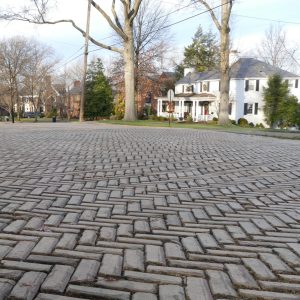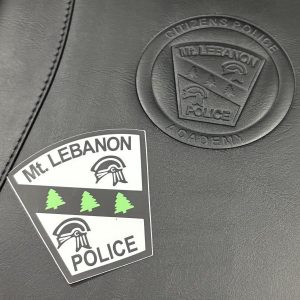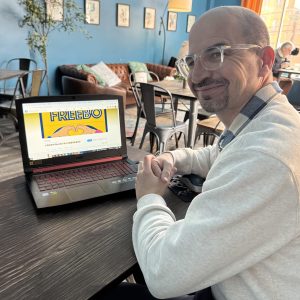walking in their shoes
My parents met on their wedding day. Like nearly all weddings more than 50 years ago in northern India, theirs was an arranged marriage. Fathers and brothers met with the prospective groom, investigated the family background, consulted the family astrologer, and set the date.
My father was impudent enough to ask to see a picture of his bride to be. It’s not all that crazy to me that he would have wanted to know what his intended looked like, but mom’s father was deeply insulted. Not enough to cancel the wedding, but enough to put my dad in his place. This leaves aside the question of how my mother felt. She didn’t dare ask any questions about my father. She trusted her brother to decide for her and he chose well.
Mom’s family had come from some distance to meet my father and his family. It was not an unfamiliar place. They returned to their home village as well, which was not all that far from dad’s village in Utter Pradesh.
I remember visiting both villages when I was about 16. We travelled on a horse cart. It must have been about 110 degrees in the noonday sun at the height of the hot season before the monsoon rains had come. The roads were dusty and deeply rutted and we would be met by all manor of vehicles and passersby: trucks overloaded by cargo, rickshaws—both bicycle and motorcycle, the occasional Jeep, and bicycles often carrying entire families.

Mom’s family had left that village a generation ago. Mom’s father, Nana, was the youngest in a family of many brothers and knew he would not inherit enough land to sustain a family. Moreover, he didn’t get along all that well with one of his sisters-in-law either and in India, given a joint family system where all the brothers and their families would be living together for all their lives, he decided it was better to break away.
So he walked. He gathered what were meager belongings and along with his wife walked a distance of about 500 kilometers from a tiny village unfound on any map in Utter Pradesh through jungles and over small mountains to a small town in what was then Madhya Pradesh. Like pioneers and homesteaders around the world he searched for a new destiny he could make on his own. Ambikapur—his new city—held promise of more prosperity.
Over time, he did prosper. But that took time and work. His first wife died. Within a few years he married another, much younger woman who was my grandmother. Nana and Nani raised five children together. My mother was the youngest. Two brothers live together to this day on the property Nana and Nani first purchased; that is the house I was born in. Mom’s older two sisters were married to two brothers who live just a mile or so down the road. They have all lived together all these years. They have all raised their children together. As their families grew, their original mud and thatch homes in Hindi referred to as kutcha or “temporary” were replace by larger “pakka” or proper strong homes—really small apartment complexes—made of concrete, tile, and marble.
Boys were given solid educations; girls were married into solid families. My mother caused an argument between her oldest brother and Nana. Nana couldn’t see the value of sending a girl on to college. In fact, my mother had always had trouble finding time to even study at all. Her household chores always came first and there were always many to be done. At the time she was the only girl among many boys so the laundry, cooking and much of the cleaning fell to her. But, in the end her brother won his quarrel with their father and she was the first girl to attend college in her family. From then on, all children were treated the same with respect to education.

In the early days Nana used to walk every day from their small mud home to a farming property he maintained on the outskirts of the town. The farm was abundant enough to provide for the education of the boys and the dowries of the girls. But their early years were difficult. He moved on in time to own a shop and try other enterprises. But life was always a struggle for them. My mother would tell me when I was younger and asking for the extravagance of, say, Calvin Klein jeans, that growing up she had two dresses: the one she was wearing and the one that she had washed that was drying on a line.
The farm is still in the family. It allows all of us cousins to step back in time and remember our grandfather. The crops grown are more for pleasure than survival now. Although one cousin does some experimental seed development there too. We drove out in Jeeps on the last visit, imagining Nana walking there every morning and home every night, struggling to feed a large family.
I never met Nana. My most vivid memory of him is one of loss when I was four or five. Mom had received a telegram from her family that he had passed away a week before. They didn’t have a telephone then. It would have been around 1969. My dad tried to comfort her. I have a faded memory of seeing my mother weeping in a way I had not seen before. We only have one black and white picture of my grandfather looking rather grim into an old camera.
Recently, my cousins have renamed the street they live on in his name: RS Tripathi Marg. They do most everything with his name on their lips, to honor his journey and the solid foundation he provided our family.
An astrologer told my mother she would marry a bit later in life. The age of 20 was late for that era. The astrologer insisted too that her presence would ensure my father would prosper and that together they would travel far.

Dad’s father, Babaji, insisted that he marry before pursuing an education abroad. He feared his son would never return and would forget his home without a wife to ground him. Babaji remained on a family farm that had been in their family for many generations. Babaji was the oldest among three brothers.
His wife, my father’s mother, died young. My father was 12 or 13 at the time and his sister perhaps five or six. The two young children were shuffled about between different families to care from them. In many ways they raised themselves. Their mother’s death left a hole in their lives until they were able to escape through their marriages and the families they themselves built.
His mother’s reputation lives as a strong woman, principled and pretty. She knew she was dying and would leave her children in the hands of a man and family she didn’t entirely respect or trust. Her husband had a wandering eye and difficult temperament. The villagers didn’t speak of this directly, but everyone seemed to know that he wasn’t an easy man. My grandmother’s brother took dad and his sister in upon her death.
My dad’s escape early on was education. He stood out in school and could compete in that arena well. He could not afford the books he needed so would borrow a friend’s copy, rewrite the book word for word in a blank notebook, and return the borrowed book to his friend the next day. Babaji saw no point in pursuing education. Farming required different skills. Luckily for dad, there were others around him who saw his promise and paved a way for him to continue.
Ten years ago, I met some of those people. A shopkeeper had lent my father the tuition money he had needed for college. It has been paid back ten-fold now in respect and in money, but their eyes met wet with tears.
A plane ticket to America required Babaji to sell a tract of land … and this benevolent act allowed him to torment my father for years to come. Dad would send money he barely had to spare from a meager student’s stipend back to his father. He still managed to do it, and complete his Ph.D. and support his own wife and children in this new land. All the while, he was also supporting his father and nearly a quarter of a village in India.
But like his new wife’s father, he had walked. He took off and flew to a new land that held promise of a better future. My dad sent for my mother and me about a year after he was in Illinois after he finally saved enough money. Getting married and having a child didn’t stop him from settling into this strange new world. It was the ’60s and things were changing all over the world. And like the other immigrants in the family, they laugh and reminisce about the initial hard times and the joy they now see in their children and grandchildren that made the journey worthwhile.






